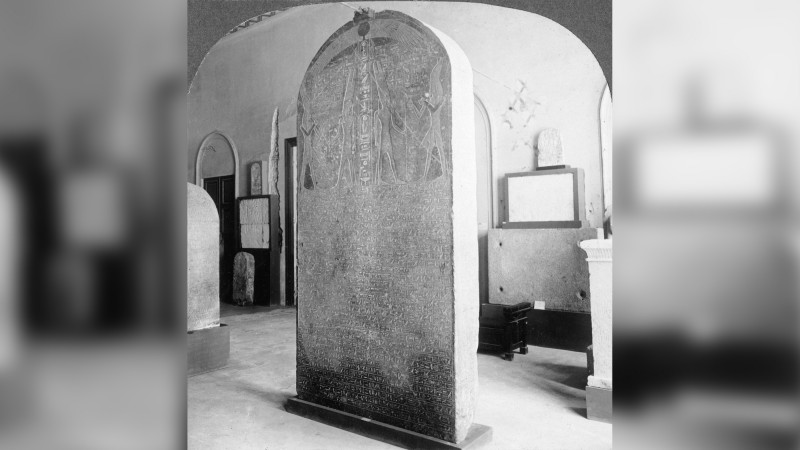
The formation of Israel is a captivating tale, deeply rooted in a long-standing conflict that has left an indelible mark on the Middle East. To truly comprehend how this remarkable nation came into existence, we must explore the historical roots of the conflict and the significant events that shaped Israel's birth.
The Middle East has been a crucible of strife, where different ethnic and religious groups have vied for dominance. The struggle for control of this region dates back centuries, but the modern conflict that led to Israel's formation began to take shape in the 19th and early 20th centuries.
To understand how Israel was formed, we need to trace the roots of the conflict. At its core, this is a dispute over land, with both Jews and Arabs laying claim to the same territory. The roots of this discord run deep, and understanding the origins is pivotal to comprehending the complex history of Israel.
The collapse of the Ottoman Empire played a crucial role in the turmoil of the Middle East. With the empire's decline, various ethnic and religious groups found themselves in a power vacuum, each with its own vision for the future of the region.
Following World War I, the League of Nations granted Britain a mandate over Palestine, a territory that included modern-day Israel. This mandate marked a significant turning point in the establishment of a Jewish homeland in Palestine.
In 1917, the Balfour Declaration was issued, a seminal moment that endorsed the establishment of a "national home for the Jewish people" in Palestine. This declaration set in motion a series of events that would ultimately lead to the formation of Israel.
As Jewish immigrants began to settle in Palestine, tensions between Jewish and Arab communities intensified. The influx of Jewish settlers and the Arab response to this migration set the stage for a protracted struggle.
In 1947, the United Nations proposed a partition plan that aimed to address the growing conflict. This plan envisioned separate Jewish and Arab states, along with an international zone for Jerusalem. While accepted by Jewish leaders, Arab leaders rejected the plan, foreshadowing further conflict.
On May 14, 1948, David Ben-Gurion declared the establishment of the State of Israel. This historic proclamation marked the culmination of decades of Zionist movement efforts and the end of British rule in Palestine.
The declaration of the State of Israel triggered a full-scale Arab-Israeli War. Neighboring Arab states, such as Egypt, Jordan, Syria, and Iraq, invaded the newly declared nation, leading to a protracted conflict.
In the years following Israel's declaration, the nascent state faced numerous challenges. Establishing governance, ensuring security, and accommodating an influx of Jewish immigrants were all formidable tasks.
The 1949 Armistice Agreements marked a ceasefire, bringing an end to the fighting. These agreements set the boundaries of Israel and the surrounding Arab states, albeit without formal peace treaties.
Israel's journey from declaration to international recognition was far from smooth. It entailed persistent efforts to gain legitimacy and recognition from the global community.
Israel's journey to international recognition was fraught with diplomatic and political challenges. Despite the difficulties, the new nation gradually gained recognition from various countries.
In 1949, Israel was admitted as a member of the United Nations, marking a significant diplomatic milestone in its journey to statehood.
The Arab-Israeli conflict did not end with the establishment of Israel. The region remained a hotbed of tensions and violence, with several wars and disputes that would significantly impact Israel's borders and security.
The Six-Day War of 1967 had a profound impact on Israel's borders and territorial control. Israel's swift and decisive victory led to the occupation of territories like the West Bank, Gaza Strip, and the Golan Heights, further complicating the region's dynamics.
A look at the modern state of Israel reveals a complex nation that has made remarkable progress in various fields.
Israel's political landscape is a dynamic and complex arena with numerous political parties and a unique coalition-based system. This complexity reflects the nation's diverse society and the challenges it faces.
Israel's economic and technological advancements have been nothing short of remarkable. The nation has become a hub for innovation, boasting a thriving tech sector and a vibrant start-up culture.
Israel's population is a rich tapestry of cultures and backgrounds, reflecting the nation's unique history and the diverse waves of Jewish immigration. This diversity has created a vibrant society with a tapestry of traditions and languages. The formation of Israel was a historic breakaway from a tumultuous history of conflict and struggle. From the Balfour Declaration to the Arab-Israeli Wars, the journey to statehood was fraught with challenges. Today, Israel stands as a thriving nation, a testament to the resilience and determination of its people. In the early 20th century, Israel emerged as a sovereign state after breaking away from a complex web of historical, political, and social forces. This article explores the roots of the conflict, the Balfour Declaration, the Arab-Israeli tensions, and the eventual declaration of the State of Israel. We also examine Israel's path to international recognition, its ongoing conflicts, and the vibrant nation it has become today.
Air India Suspends Tel Aviv Flights Amid Israel-Hamas Conflict
Durga Puja 2023: Kolkata Metro Extends Services, Opens More Counters